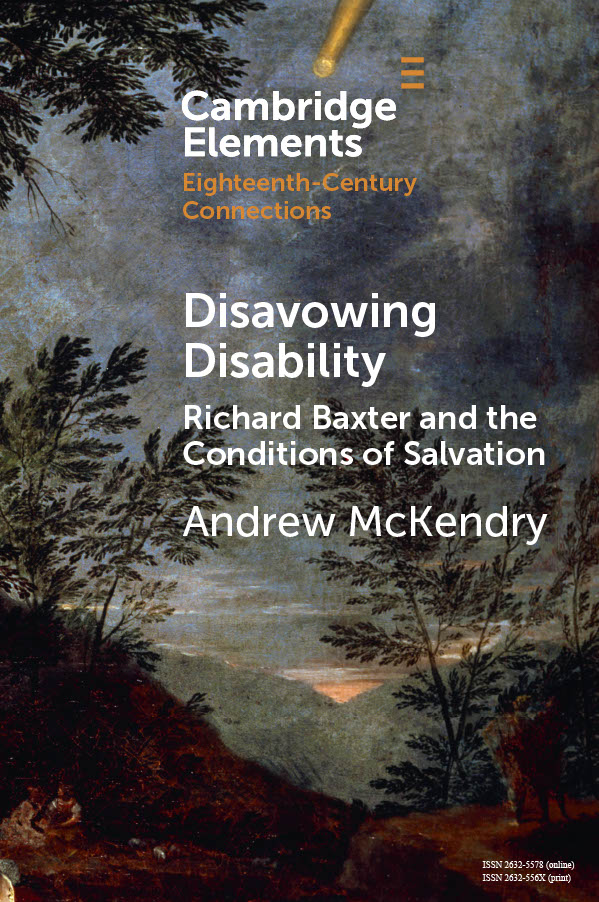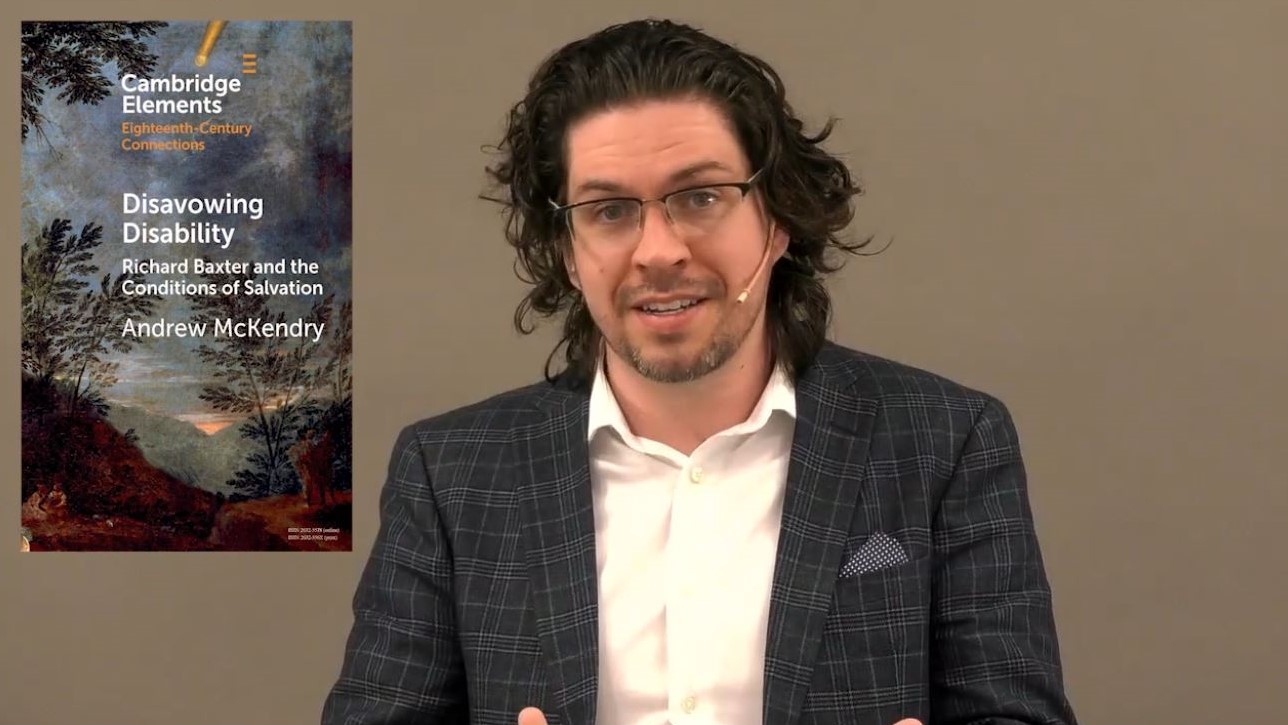- Author
- Publisher
- Year
- ISBN
- Language
- Andrew McKendry
- Cambridge University Press
- 2021
- 9781108823128
- English
Disavowing Disability examines the role that disability, both as a concept and an experience, played in seventeenth-century debates about salvation and religious practice. Exploring how the use and definition of the term “disability” functioned to allocate agency and culpability, this study argues that the post-Restoration imperative to capacitate “all men”—not just the “elect”—entailed a conceptual circumscription of disability, one premised on a normative imputation of capability. The work of Richard Baxter, sometimes considered a harbinger of ‘modernity’ and one of the most influential divines of the Long Eighteenth Century, elucidates this multifarious process of enabling. In constructing an ideology of ability that imposed moral self-determination, Baxter encountered a germinal form of the “problem” of disability in liberal theory. While a strategy of “inclusionism” served to assimilate most manifestations of alterity, melancholy presented an intractability that frustrated the logic of rehabilitation in fatal ways.
This title is available as Open Access on Cambridge Core.- Reviews



